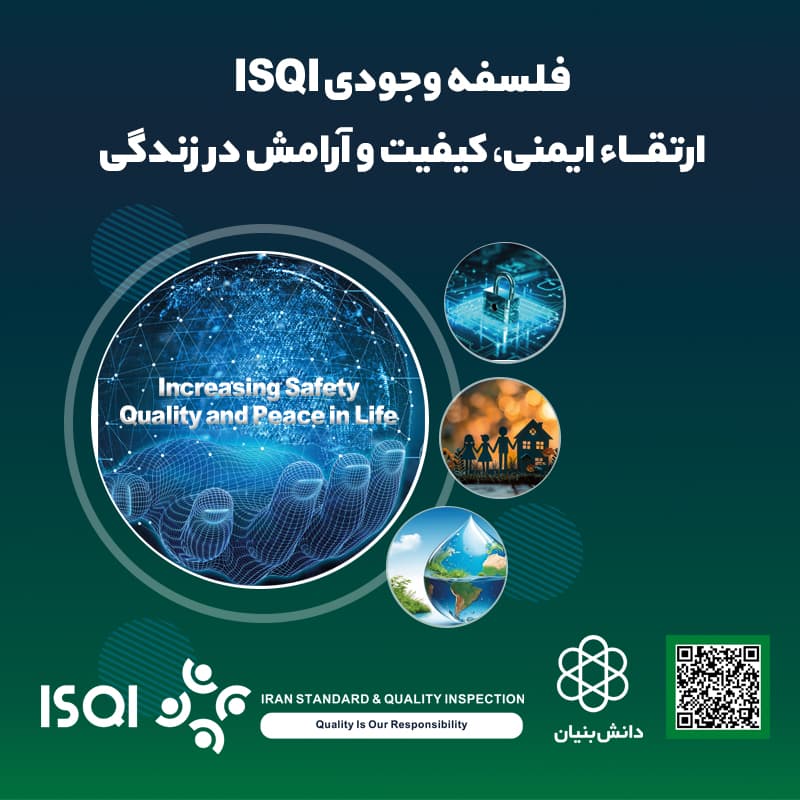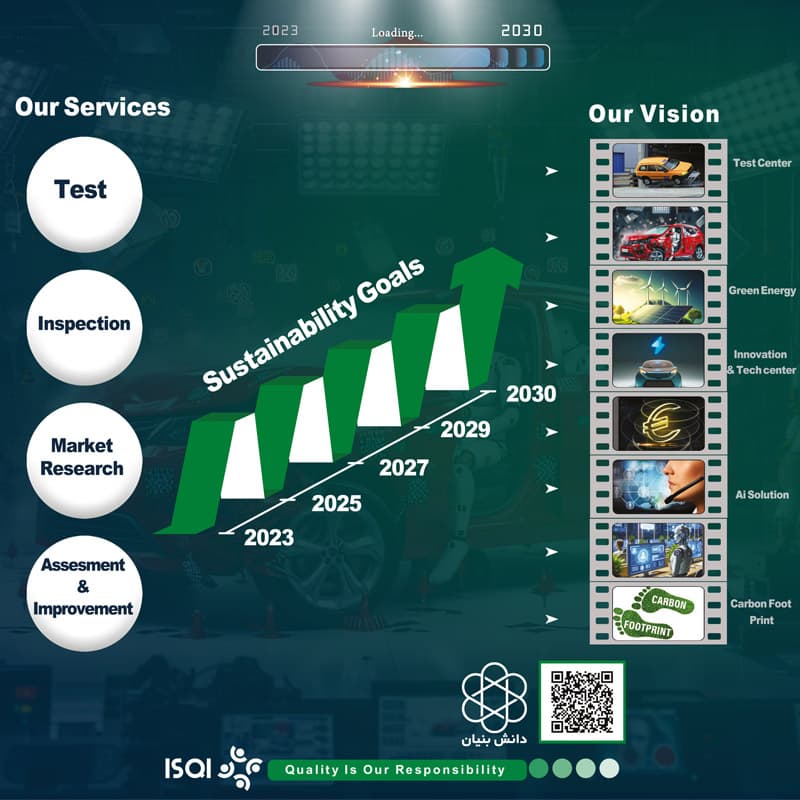A transportation and economic development conference was held on the occasion of National Transportation Day, attended by the Speaker of the Islamic Consultative Assembly, the head of the Tehran City Council, and a number of members of parliament. The event was organized by the Energy and Environment Commission and the Transportation Commission of the Tehran Chamber of Commerce.
The CEO of ISQI and the head of the Energy and Environment Commission of the Tehran Chamber of Commerce also stated in the conference, referring to the philosophy behind holding this event: “The aim was to, while commemorating Transportation Day, address our concerns directly with the representatives and the head of the legislative body of the country and to express that our concern is not legislation, and we do not seek new laws from you; our request is deregulation of the transportation industry.”
Saeed Tajik, stating that the main incompetence of the country is not budgetary, electricity, or currency incompetence, but rather incompetence in adhering to the law, continued: “You spend hours, days, and months in the parliament approving various laws, but in practice, not even the most fundamental laws of the country, such as the laws of the five-year development plans, are implemented, as confirmed by the Research Center of the Parliament, with less than 30 percent execution, and no one is responsible.”
Tajik further emphasized that his remarks pertain to laws such as the Consumer Rights Protection Law for automobiles, the Automobile Quality Improvement Law, the Clean Air Law, the Public Transportation Development and Fuel Consumption Management Law, and the Automobile Industry Regulation Law. He continued: “In the Automobile Industry Regulation Law, which was actually approved by the parliament during this period, the parliament authorizes the Ministry of Industry, Mine, and Trade to carry out automobile imports according to a regulation and under certain conditions, with a validity period of 5 years. However, 19 months have passed since the approval of this law, and many private sector companies have volunteered for imports and have been negotiating with foreign parties and providing domestic infrastructure, putting a considerable burden on the Ministry of Industry, Mine, and Trade, the Standardization Organization, the Environmental Organization, Customs, and other relevant bodies to regulate the provisions and regulations of this law. Now, after 19 months, which is roughly one-third of the 60-month lifespan of this regulation, the head of the Planning and Budget Organization announces that allocating 2 to 3 billion dollars for automobile imports is not in the country’s best interest.”
He continued by raising the question, “Wouldn’t it have been better if, before the law was passed, its required resources were examined?'”
He continued: Another example of this legislative deficiency, which particularly entangles us all during this season of the year, is the Clean Air Act. Just mentioning the tragedy of the Clean Air Act is enough; the law was approved on July 16, 2017, and it was stipulated that the government at the time should prepare its executive regulations within 3 months. However, its executive regulations were prepared in the following September. Interestingly, the previous regulations were revoked in June 2021, and a new regulation has been approved.
This member of the Tehran Chamber of commerce said: The number of clean and healthy days of air in Tehran decreased from 257 days in the year 2017 to 195 days in the year 2022, which means that healthy and clean days decreased by 24 percent. Also, in the past 5 years, 5 million cars and about 2.5 million motorcycles were produced, and almost 25 percent were added to the country’s vehicle fleet. Additionally, during this period, daily gasoline consumption increased by 50 percent, rising from 80 million liters to 120 million liters per day.
He stated that with the reduction of car scrappage from around 250 thousand units per year to one-tenth, reaching about 30 thousand units, and almost all car scrappage centers in the country being closed, he continued: “The halt in the scrappage process for both passenger and heavy vehicles has resulted in approximately 20% of passenger cars, 70% of motorcycles, and about 35% of the country’s commercial freight and passenger fleets being worn out today. If these worn-out fleets were replaced with domestically produced vehicles, in the passenger car and motorcycle sector alone, at least 30 million liters less gasoline would be consumed daily, and at least 15 billion dollars less would be spent on gasoline annually. This situation also applies to diesel vehicles, where approximately 20 billion dollars could be saved in diesel fuel through fleet renewal.”
According to the head of the Transportation and Environment Commission of the Tehran Chamber, the annual number of fatalities in the country due to road accidents increased by 13% from 17,200 in the year 2018 to 19,500 in the year 2021. Additionally, in the first seven months of 2022, there has been a 7.3% increase compared to the same period last year, reaching 12,300 fatalities.
He also stated: “Over the past 5 years, with the actions that have been taken, the emissions of pollutants such as carbon monoxide and sulfur oxides have shown a decreasing trend, and lead, which had been removed from gasoline for years, has almost been eliminated from the air pollution parameter. However, parameters such as PM2.5 and PM10 particulate matter, which are actually the main cause of air pollution, have increased. As a result, the mortality attributed to air pollution in terms of particulate matter in the year 2021 is estimated to be around 26,000 individuals, with health-related costs equivalent to 11.5 billion dollars.”
Tajik emphasized that during this same period and in line with the implementation of the Clean Air Act, some good measures have been taken, including the improvement of emission standards for manufactured vehicles. He continued by raising the question of why these efforts and actions have been ineffective despite all the costs imposed on both manufacturers and consumers. He elaborated: “Despite the obligation of car manufacturers to adhere to emission standards and the implementation of these standards in the production stage, the results of evaluating emissions from vehicles in operation indicate that due to the consumption of low-quality fuel, vehicles do not meet Euro 5 standards just one year after use. Interestingly, under the Clean Air Act, these same vehicles are exempt from undergoing technical inspections for 4 years. Whereas, for example, in most European countries with much higher levels of automotive technology, the exemption from technical inspections is only for 2 years.”
He continued, “Despite the mandatory requirement of technical inspection of boiler rooms in residential, administrative, and public buildings as one of the obligations of the Clean Air Law, the implementation of this provision is also halted. While only implementing this standard and controlling the consumption of boiler rooms of the buildings can reduce gas consumption by 10 to 15 percent and regulating the emissions of pollutants from stationary sources, which exacerbates air pollution in winter by up to 35 percent. Therefore, it is possible to implement this procedure at least in public and government buildings with cooperation such as making the extension of the gas distribution subject to the receipt of the engine room standard approval.”
At the end, in summarizing his speech, he presented suggestions in the form of the following eight paragraphs:
1- Let’s take the imbalance of laws seriously and kindly request the esteemed parliament to expedite the enactment of new laws in the transportation and automotive sectors and prioritize monitoring the proper implementation of previous laws.
2- The issue of scrapping vehicles and modernizing the road fleet should be revitalized as quickly as possible.
3- The structure of vehicle inspections should be reformed to be more economical and efficient, and in the first step, the 4-year exemption for new cars from technical inspections specified in the Clean Air Act should be reduced to 2 years.
4- The Ministry of Oil should fulfill its commitments in providing standard fuel.
5- By conditional the renewal of gas subscriptions, support the Standards Organization to at least implement the standard inspection of boiler rooms in administrative, public, and governmental buildings.
6- Clearly allocate funds in the annual budget to the Environmental Protection Agency for the proper implementation of the Clean Air Act.
7- Distinguish the credits of Article 12 of the law on removing obstacles to competitive production, under the title of fuel saving, which relates to plans that lead to reduced consumption, firstly from the rule of the government’s unfulfilled promises to the private sector, and secondly separate its path from the complexities of the target subsidy organization.
8- Take international conventions and conferences aimed at reducing carbon emissions seriously and utilize their opportunities for obtaining international technical knowledge, experiences, and financial facilities for energy consumption reduction and pollutant emission reduction.







